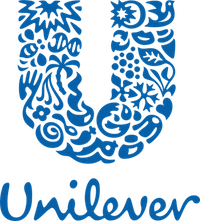Unilever Hiring Process
 62 Tests · 800+ Questions
62 Tests · 800+ QuestionsRead about Graduate and Professional hiring processes at Unilever (updated 2025).

About Unilever
Unilever is a British company, one of the world market leaders in food and household products (including perfumes). It is headquartered in London, UK.
Founded in 1929 as a result of a merger between Margarine Unie, a Dutch margarine manufacturer, and Lever Brothers, a British soap industry pioneer, in order to economise on scale: both manufacturers imported palm oil en masse. At the end of the 20th century up until the merger between Procter & Gamble and Gillette in 2005, it was the world's largest consumer products manufacturer, second-largest in terms of sales as of 2020.
Employed 155,000 people (2019), capitalised at the beginning of 2020 at $107bn, revenues (2019) at €52bn, profits (2019) at €6bn. Chairman Niels Andersen, CEO Alan Jope.
In 2021, the company changed its Dutch jurisdiction to the UK.
Unilever recruitment process in 2025
- Online application form
One of the first stages of the recruitment process is filling in the application form on Unilever Careers website.
The online application form is usually presented as a questionnaire with the option of importing data from a LinkedIn or CV file.
The applicant is required to provide information about work experience, education, skills and other necessary details.
There may be questions both about job preferences (e.g. desired type of employment, country and city of residence) and more personal questions (e.g. race and ethnicity, religion, disability)
- Phone / Video Interview
Successful candidates are invited for a 15-20 min. phone call.
Soft skills are usually assessed during this call by the Unilever recruiter.
In some cases, Unilever hiring manager may invite you for a video interview (most commonly conducted with HireVue.) For software engineering positions, candidates may be asked to complete a coding challenge (problems on algorithms + take-home challenges.)
- Online tests
The next stage of the Unilever recruitment process is an online assessment. The candidate will be sent an email invitation to complete Unilever tests.
Unilever uses different types of recruitment tests to assess candidates and their suitability for the position they are applying for.
Candidates are most often asked to complete the following tests:
Numerical reasoning tests are standardised psychometric assessment tools that help Unilever determine a candidate's ability to work with numbers and graphs, make good decisions and draw conclusions based on numerical or statistical data. The tests simulate the work environment and goals of a prospective employee. Try our Free sample Numerical reasoning test.
Verbal reasoning tests allow Unilever to determine a candidate's ability to perceive and analyse verbal information and to draw conclusions. Free sample Verbal tests are available to practice here and here.
Logical (inc. Diagrammatic and Inductive ) reasoning tests are designed to assess the candidate's ability to work with abstract information. Unilever Logical assessment may consist of special diagrams, geometric shapes and other lined-up images, where a candidate has to continue the row in a logically correct way. Here you can practice a Free sample Logical test, a Free sample Diagrammatic test, and a Free sample Inductive test.
Situational judgement tests consist of short simulated scenarios that define a working style and assess specific tasks in a working environment. Unilever Situational tests are used to assess applicants' competencies, communication skills, motivation, and preferred styles of problem-solving. Try our Free sample Situational judgement test before taking the real one.
Mechanical reasoning tests are designed to assess candidates' critical and abstract thinking skills important for engineering and science-related positions at Unilever. Free sample Mechanical test.
- Assessment centre
Successful candidates are invited to visit the nearest Unilever headquarters or office.
Candidates will have a chance to personally meet the hiring manager, team leaders and seniors during the assessment day.
Unilever may organise a group exercise with candidates as part of the hiring procedure.
- Partner interview
The final stage of the recruitment process.
The candidate will have a chance to meet the hiring manager, department director and/or division lead.
Normally, there is no assessment at this stage.
Candidates are mostly expected to demonstrate soft skills and a desire to join Unilever.
Useful Unilever links
Free Unilever tests
Latest Unilever news
Stay up to date with the latest news about Unilever
Loved by people like you
More Unilever online tests
We're here to help you
Chances are high that your question is already answered on our FAQ page. If not, feel free to contact us anytime.
 40% OFF
40% OFF